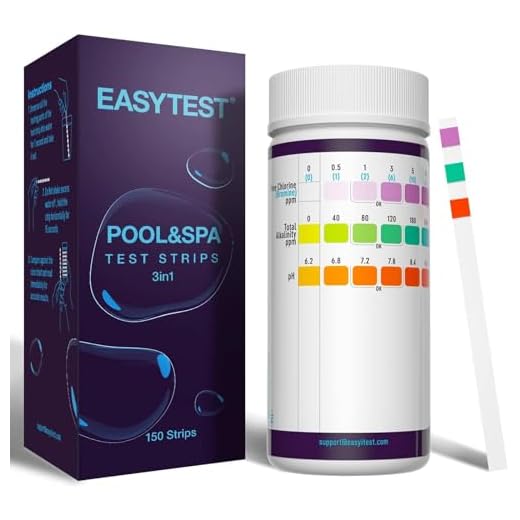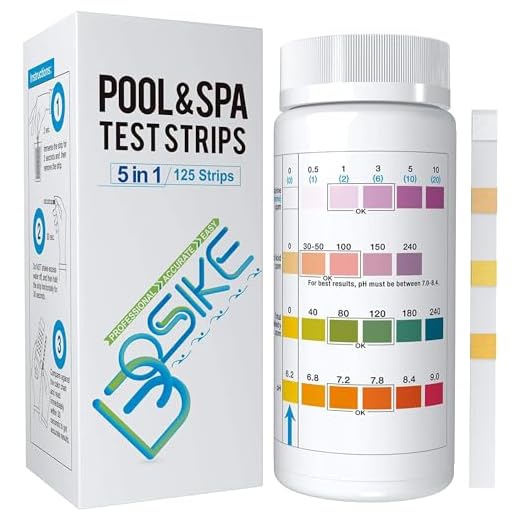How to raise alkalinity in hot tub

Soaking in a hot tub is a wonderful way to unwind and relax after a long day. However, it’s important to maintain the proper water balance to ensure the health and longevity of your hot tub. One crucial factor to consider is the alkalinity level. Alkalinity acts as a buffer, preventing rapid changes in the pH level of the water. If the alkalinity is too low, it can cause the pH to fluctuate, resulting in a host of problems such as skin irritation, corrosion, and cloudy water.
If you find that the alkalinity level in your hot tub is low, don’t panic! There are several simple and effective methods to raise the alkalinity. One option is to use baking soda, a common household item that can work wonders when it comes to balancing the water chemistry in your hot tub. Baking soda contains sodium bicarbonate, which acts as a natural alkaline compound, helping to increase the alkalinity level.
To raise the alkalinity using baking soda, simply calculate how much is needed based on the volume of your hot tub. Generally, you’ll need about 1.5 pounds of baking soda for every 10,000 gallons of water to increase the alkalinity by 10 parts per million (ppm). Be sure to add the baking soda to the water slowly and evenly distribute it throughout the hot tub. Afterward, test the water again to ensure that the alkalinity has reached the optimal level.
Another method to raise alkalinity is to use alkalinity increaser or a pH increaser specifically designed for hot tubs. These products are readily available at stores that sell hot tub supplies. Follow the manufacturer’s instructions carefully and add the recommended amount of the product to the water. Remember to test the water regularly to avoid overcorrecting the alkalinity level, which can lead to a high pH.
It’s crucial to regularly monitor and maintain the alkalinity level in your hot tub as part of your water care routine. Test the water at least once a week using a reliable test kit, and make adjustments as necessary. By keeping the alkalinity level within the recommended range (80-120 ppm), you can enjoy clean, clear water in your hot tub and extend its lifespan. Remember to always follow the manufacturer’s recommendations and consult a professional if you’re unsure about any aspect of hot tub maintenance.
What is Alkalinity in Hot Tub
Alkalinity refers to the level of alkaline substances, such as bicarbonates, carbonates, and hydroxides, in the water of a hot tub. It is an important factor to maintain a balanced and healthy water environment.
High alkalinity levels can lead to issues such as cloudiness, scaling, and pH fluctuations, while low alkalinity levels can cause corrosion and pH instability. It is crucial to regularly test and adjust the alkalinity in your hot tub to keep the water clean and safe for use.
The ideal alkalinity level for a hot tub ranges between 80 and 120 parts per million (ppm). If the alkalinity level is too high, you can lower it by adding a pH decreaser or muriatic acid. On the other hand, if the alkalinity level is too low, you can raise it by adding an alkalinity increaser or sodium bicarbonate.
Monitoring and adjusting the alkalinity in your hot tub on a regular basis will help prevent common water chemistry issues and keep your hot tub water balanced and pleasant for soaking.
Learn the Importance of Alkalinity
Alkalinity is a crucial factor to consider when maintaining a hot tub. It refers to the water’s ability to resist changes in pH levels. Having balanced alkalinity levels in your hot tub is essential for ensuring healthy and safe soak sessions.
Why is Alkalinity Essential?
Alkalinity plays a vital role in maintaining the pH levels of your hot tub water. If the alkalinity is too low, the pH levels can fluctuate and become unstable. This can lead to several issues, such as:
- Corrosion of metal parts in the hot tub
- Etching or staining of the hot tub surface
- Skin and eye irritation for hot tub users
On the other hand, if the alkalinity is too high, it can also lead to problems. High alkalinity makes it challenging to control and adjust the pH levels, which can result in:
- Cloudy and murky water
- Scale buildup on hot tub surfaces
- Inefficient sanitization and disinfection
The Ideal Alkalinity Range
The recommended alkalinity range for a hot tub is typically between 80 and 120 parts per million (ppm). Maintaining alkalinity within this range can help stabilize the pH levels and prevent many problems.
Not only does balanced alkalinity benefit the hot tub, but it also ensures a more enjoyable and comfortable soaking experience for hot tub users.
Regular testing of alkalinity levels is essential to detect any imbalances. If the alkalinity levels are out of range, appropriate measures, such as adding alkaline increaser or pH balancers, should be taken to bring the levels back into balance.
In summary, maintaining appropriate alkalinity levels is crucial for the overall health and longevity of your hot tub. It is a key aspect of proper hot tub maintenance that should not be overlooked.
Raising Alkаlinity Levels
Proper alkalinity levels are essential for balanced water chemistry in a hot tub. Alkalinity acts as a buffer, helping to stabilize the pH levels and prevent rapid changes that can lead to corrosion or scaling.
If you’ve tested your water and found that the alkalinity levels are too low, here are a few steps you can take to raise them:
1. Add Baking Soda
One of the simplest ways to increase alkalinity is to add baking soda to your hot tub. Dissolve half a cup of baking soda in a bucket of warm water, then pour the mixture into the tub. Circulate the water to ensure even distribution of the baking soda.
2. Use Alkalinity Increaser
An alkalinity increaser is a chemical product specifically designed to raise alkalinity levels in hot tubs. Follow the manufacturer’s instructions and add the recommended amount to your water. Be sure to test the water after adding the increaser to ensure the desired alkalinity level has been reached.
3. Balance the pH
Alkalinity and pH are closely related, and imbalances in pH can affect alkalinity levels. Test and adjust the pH levels in your hot tub using a pH increaser or decreaser as needed. Once the pH is balanced, it will be easier to maintain proper alkalinity.
Note: It’s important to regularly test your water and adjust the alkalinity levels as necessary. Over time, alkalinity levels may fluctuate due to factors like product usage, water evaporation, or absorption of contaminants. Maintaining proper alkalinity is crucial for the longevity of your hot tub and the effectiveness of your sanitization process.
If you’re uncertain about how to raise alkalinity levels or if you’re experiencing persistent issues with your hot tub chemistry, it’s recommended to consult a professional or contact the manufacturer for further guidance.
Step-by-Step Guide
Alkalinity is an important factor in maintaining the balance of your hot tub’s water chemistry. If the alkalinity levels are too low, it can lead to pH fluctuations and cause corrosion and staining. To raise the alkalinity in your hot tub, follow these step-by-step instructions:
Step 1: Test the Alkalinity
Use a test strip or testing kit to measure the current alkalinity level in your hot tub. The ideal range for alkalinity is between 80 and 120 parts per million (ppm). If the alkalinity level is below 80 ppm, it needs to be raised.
Step 2: Add Baking Soda
If the alkalinity level in your hot tub is low, you can raise it by adding baking soda. Baking soda is sodium bicarbonate, which acts as a buffer to maintain a stable pH level. Start by adding 2 tablespoons of baking soda per 100 gallons of water. After adding the baking soda, turn on the jets to help distribute it evenly.
Note: It’s essential to make adjustments gradually and measure the alkalinity level after each addition to avoid overcorrecting.
Step 3: Wait and Retest
Allow the water to circulate for at least 4 hours after adding the baking soda. This will give it enough time to dissolve and mix thoroughly. Then, retest the alkalinity level to determine if you need to make further adjustments. Repeat step 2 if necessary.
Remember, increasing the alkalinity will bi oh positive.effects the pH level of the hot tub water. It’s best to aim for alkalinity first and then adjust the pH if needed.
By following this step-by-step guide, you can effectively raise the alkalinity in your hot tub and ensure the water remains balanced and safe for use.
Using Baking Soda to Raise Alkalinity
If the alkalinity levels in your hot tub are too low, you can effectively raise them by using baking soda. Baking soda, also known as sodium bicarbonate, is a basic compound that can help increase the alkalinity of your water.
Step 1: Test the Water

Before adding baking soda to your hot tub, it’s important to test the water’s alkalinity levels using a pH testing kit. This will give you an accurate reading of the current alkalinity.
Step 2: Calculate the Required Amount
Based on the results of the test, you will need to calculate the correct amount of baking soda to use. On average, adding 1.5 pounds of baking soda for every 10,000 gallons of water will increase alkalinity by 10 ppm (parts per million).
Step 3: Turn off the Hot Tub
Before adding the baking soda, make sure to turn off the hot tub to prevent water circulation. This will allow the baking soda to dissolve properly.
Step 4: Add the Baking Soda
Slowly add the calculated amount of baking soda to the hot tub. It’s best to distribute the baking soda evenly across the water surface to ensure it disperses properly.
Step 5: Test and Adjust
Wait for the baking soda to dissolve and then test the water’s alkalinity levels again using the pH testing kit. If the desired alkalinity is not reached, you can repeat the process by adding more baking soda.
Note: The alkalinity should be kept within the recommended range of 80-120 ppm to ensure proper water balance and the effectiveness of sanitizers in your hot tub.
Raising the alkalinity in your hot tub using baking soda is an easy and effective method. However, it’s always a good idea to regularly test the water’s chemistry to maintain balanced levels and keep your hot tub clean and safe.
Alternative Method
If the regular methods for raising the alkalinity of your hot tub haven’t been successful, there is an alternative method you can try:
- Fill a clean bucket with warm water.
- Add a sodium bicarbonate-based alkalinity increaser to the bucket, following the product’s instructions for the recommended amount.
- Stir the mixture well until the alkalinity increaser is fully dissolved.
- Turn off the hot tub pump.
- Slowly pour the diluted alkalinity increaser mixture into the hot tub.
- Turn the hot tub pump back on and let it circulate for about 30 minutes.
- Retest the alkalinity level using a test strip. If needed, repeat the process or adjust the amount of alkalinity increaser added.
- Once the desired alkalinity level is reached, continue with your regular hot tub maintenance routine.
Keep in mind that this alternative method may have different effects on your hot tub’s overall water chemistry, so it’s important to monitor the other levels regularly and make any necessary adjustments.












